ATLANTA (Georgia Recorder) — Ask Susan Cobb and she’ll tell you: She never had plans to become an activist.
A registered nurse, she led a relatively normal life, raising her two children in Hartwell, Georgia, with her husband, Wayne. During her days as a nursing student at Brenau University, she said, “we often talked about how someone in our class would be an activist.”
“I never envisioned that I would be in that position,” she added. “But I never envisioned losing my daughter.”
A talented gymnast who dreamed of someday making the Olympic team, Cobb’s daughter Jennifer began attending a gymnastics program through their local YMCA in Hartwell at age 11.
“Jennifer had a beautiful heart, and she loved equally,” Cobb said. “She cared about humanity. She loved animals, and she was a giver.”
But by the time she was 12, Cobb says, Jennifer had become the victim of grooming by one of her coaches, who was 17 years older than her. After years of abuse, she came forward to report him, prompting the family to file criminal and civil charges against him, as well as a civil suit against the YMCA.
Though the Cobb family eventually reached a settlement with the YMCA for $2 million, both of their cases against the coach are still pending. Jennifer never got to see justice served. She was found dead in 2021 in what is believed to be a suicide.
“I promised when she died that I would fight for the justice she was denied in life, that I would fight for that in her death, and I would also fight for other victims,” Cobb said. “And that is the reason I’m here now, is for other victims.”
When Georgia Gov. Brian Kemp signed a trio of bills aimed at increasing protections for sexual abuse and human trafficking survivors into law last April, Cobb was one of many survivors and advocates who stood by his side. She held First Lady Marty Kemp’s hand while watching Kemp sign House Bill 993, which created a new felony offense for grooming a minor. But this year, as discourse over legislation that would overhaul Georgia’s civil litigation landscape intensifies, she has found herself in opposition to the governor, joining a growing number of activists and advocates who are speaking out against his top legislative priority: Senate Bill 68.
Survivors sound alarm on SB 68
Kemp has said early and often this year that legislation bringing sweeping changes to Georgia’s civil litigation landscape — referred to by supporters as “tort reform” — is his top legislative priority of 2025. He has repeatedly argued that sweeping policy changes are needed to bring down insurance costs for businesses throughout the state and has been steadily ramping up pressure on lawmakers to deliver “meaningful, impactful” changes by the end of the 2025 session under the threat of calling them back to the Capitol later this year to get the legislation passed.
Proponents of SB 68 say it is aimed at creating more balance between plaintiffs and defendants in Georgia’s court system, often citing an American Tort Reform Foundation ranking which listed Georgia as one of the top five “judicial hellholes” in the country in 2024.
But as the bill nears a vote in the House Subcommittee of Rules on Lawsuit Reform, survivors of human trafficking, advocates for sexual assault survivors and the trial lawyers who represent them have been sounding the alarm about aspects of the bill they say could prevent nearly all victims from receiving justice through the civil system.
Section 6 of the bill, which would limit lawsuits against business owners for accidents that occur on their property, alters the current standards that require business owners to keep their customers safe. During hours of testimony at a House Rules subcommittee meeting last week, trial lawyers argued that allowing the bill to pass into law would effectively gut their ability to pursue damages for many sexual assault survivors.
“With the bill as currently written, there will never be another survivor who files a case in Georgia courts,” said Jonathan Tonge, an attorney who specializes in human trafficking cases. “It would be malpractice to do that.”
Part of the reason opponents argue the language would be detrimental is because it’s very common for premises liability cases to be filed for reasons that go beyond just the physical condition of a property and can pertain to issues like negligent behavior of employees or management. When the Cobb family filed their lawsuit, their claim was not that the physical conditions of the YMCA were unsafe but rather that the business had failed to uphold its own policies around reporting misconduct, allowing the coach’s abuse of Jennifer to go unchecked long after employees became aware of his behavior.
“No one called the police,” Cobb said. “Reports were made that he was seen kissing her in the gym, her getting in his car, getting out of his car, being caught in the bathroom together, all these numerous, numerous, numerous, numerous times that he physically molested, sodomized, raped her. We were never told. We were never given the chance to pull her out and keep her safe.”
She also rebuked claims from supporters of SB 68 that victims and trial lawyers were regularly filing baseless lawsuits in pursuit of financial gain.
“It was never about the money for us,” Cobb said, explaining that the funds from the YMCA settlement will be put towards a foundation that bears Jennifer’s name. “I don’t want one dime of that money because it will not bring her back. I don’t want that money for me. I want it to help others.”
Survivors of human trafficking also spoke out against the legislation, urging lawmakers to consider the impact that SB 68’s wording would have on the hotels and motels that turned a blind eye to trafficking survivors’ exploitation. Michal Roseberry, a trafficking survivor and activist, shared her story in front of the committee, explaining how hotel employees actively ignored the abuse she endured at the hands of her pimp.
“My traffickers weren’t just the men who controlled me; they were the people who allowed it to happen,” she said. “My trafficker was the man in the hotel lobby who watched me be abused and did nothing. My trafficker was the maid who emptied trash cans filled with used condoms and cleaned bloodstained sheets and stayed silent. My traffickers were the hotel managers and owners who saw bruised and terrified girls day after day, who watched hundreds of men come and go, who witnessed us trying to run away in the parking lot, only to be dragged back by our hair, screaming, and still they did nothing. My trafficker was the hotel itself.”
Chanda Santana, the founder of DIVAS Who Win Freedom Center and the mother of a trafficking survivor, echoed Roseberry’s sentiments.
“Let’s be clear: motels are not innocent bystanders in this crisis,” she said. “They are not helpless victims of crime. They are active participants, profiteers of pain, who have allowed traffickers to run their operations freely, unchecked and in some cases with full knowledge and even collaboration. If we pass this bill without an exception to hold hotels accountable, we are giving them a pass to continue cashing in on our children’s suffering.”
Advocates for sexual assault survivors also urged lawmakers to reconsider another provision that would allow defendants to bifurcate or trifurcate trials — that is, split them up into multiple phases so that injury and damages can be determined separately.
“SB 68’s requirement for multiple trial phases will force them to relive their trauma repeatedly, first to prove liability, then to argue for damages, and potentially again for punitive measures,” said Michelle Maggard, a therapist who works with survivors of sexual assault. “Each time they testify, they are forced to reopen wounds they are trying desperately to heal. From a clinical perspective, this process is deeply, deeply harmful.”
Trial lawyers have also offered amendments to the bill they say would ensure their clients can still seek justice through the civil court system.
Under current Georgia law, “sex trafficking survivors are to be protected by business owners exercising ordinary care to keep the place safe and not creating what’s called a nuisance,” said Kara Phillips, a personal injury lawyer at the Atlanta firm Deitch & Rogers. “SB 68 eliminates that. So an easy fix is to simply add in a carve-out for all survivors of any kind of sexual abuse, assault, rape, sodomy and trafficking.”
But lawmakers have yet to address criticisms of the bill, adjourning from their most recent hearing without voting on the bill. Senate President Pro Tem John F. Kennedy, a Macon Republican who is the bill’s sponsor, also repeatedly rebuffed attempts to amend the measure after concerns about human trafficking victims were raised during a hearing in the Senate Judiciary Committee.
Kemp weighs in on SB 68
As criticism for SB 68 has grown, Kemp has continued to boast support for the bill as it is currently written. At a bill signing ceremony for the amended 2025 budget on March 6, Kemp addressed the emerging opposition to SB 68.
“It’s only now that the bill moved out of the Senate that desperation has set in for those that are opposing the bill,” he told reporters. “And quite honestly, they are stretching the truth. I can tell you that as a husband to that lady right there, as a father of three daughters, this bill, in its current form, or a bill that I will sign, is not going to keep anyone, anyone in the state, from receiving the justice that they deserve.”
He also sent a letter to the chair of the Subcommittee of Rules on Lawsuit Reform, urging the panel to be cautious of testimony that “flagrantly mischaracterized” the impact of SB 68.
“It is my hope that our work together will continue to be guided by thoughtful deliberation, free from emotional exploitation and mindful of the financial motivations present on both sides of this important debate,” he wrote.
For Susan Cobb, his response to survivors’ concerns about the bill has been a tough pill to swallow.
“It hurts,” Cobb said. “I would not do anything if I didn’t believe in it and researched it. You know, I have a master’s degree in education. You couldn’t just ask me to come up here and advocate or something if I hadn’t researched it, understood it, and supported it.”
But despite Kemp’s initial response to the criticism against SB 68, Cobb is hopeful that he will not sign a law that would harm Georgia residents.
“I believe he cares about the citizens of Georgia,” she said. “I believe his wife cares about the citizens of Georgia. I believe that with all my heart.”
But she added, “I am just begging from the depths of my heart to please amend this bill.”


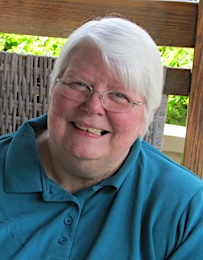
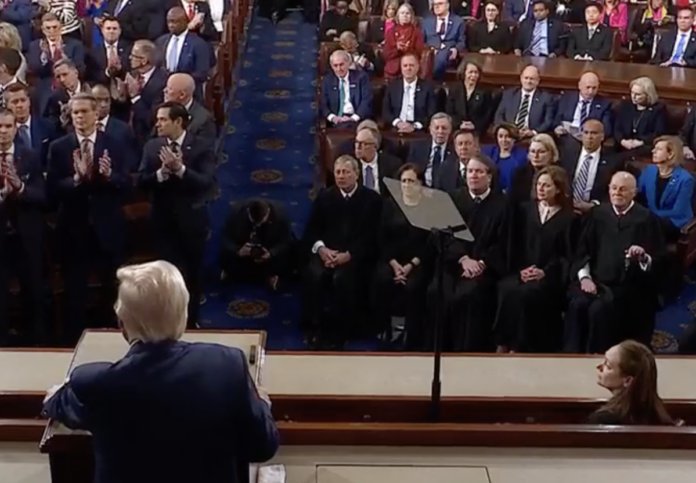

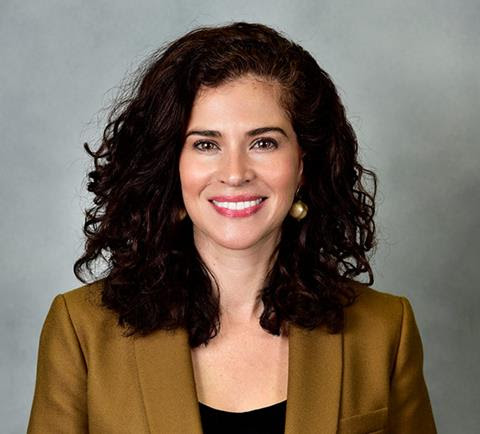


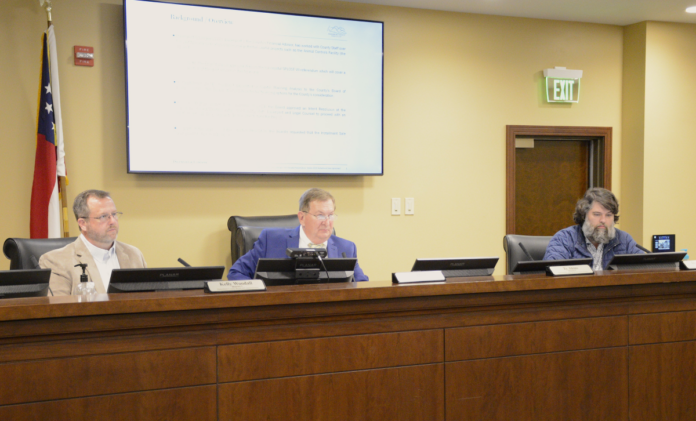
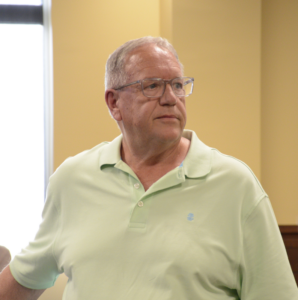
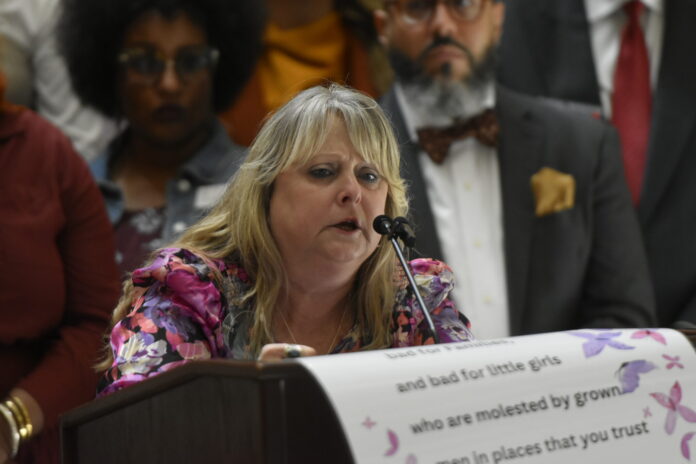


Protect property rights: Reject the overreaching Derelict Vehicles Ordinance
To the Habersham County Commissioners,
During the monthly commissioner’s meeting yesterday I heard about, and subsequently read, the proposed Derelict Vehicles Ordinance with some concern. I believe deeply in the personal freedoms that we, as both Americans and citizens of Georgia, have struggled for, bled for, and many died to protect. I also believe that regulations and laws, while sometimes necessary and appropriate, must take the least intrusive form adequate to protect the interests of society and of the people.
Personal property rights are one of the fundamental bedrocks that our society was founded on, and this ordinance directly infringes on those rights in a way that far exceeds the minimum form needed to protect the government’s interests. If we as Americans want to retain our personal freedoms and limit the scope of government overreach, then we are going to have to do more than just give lip service to the idea of Freedom. We have to closely safeguard those freedoms by squashing tyranny wherever it raises its head, and this ordinance, if passed, would be a perfect example of that tyranny, even if well-intentioned.
If some of the people of Habersham County want to live in a glorified HOA, then they should feel free to incorporate and form one. The rest of us should be left alone as much as possible (subject to appropriate public health and safety concerns) and left free to live our lives and enjoy our own private property.
It was stated during the first reading of this proposed ordinance that the intent is not to target Grandma’s Model-T or Art Installations. However, regardless of the intent and the stated assurances, an Ordinance becomes Law as written. Therefore, since we are a Nation of Laws rather than People, it must also be applied uniformly and fairly. We can’t simply trust the placations of the people that drafted and are currently responsible for enforcing the ordinance; we have to make sure that laws are precisely and correctly written and appropriately limited in scope.
As currently written, this proposed ordinance is applicable not only to Grandma’s Model-T and Art Installations. It is also applicable to the ’76 Ford Truck that your grandson is rebuilding over the course of the summer so that he has a vehicle to take to college. It is applicable to the ’50 Ford Tractor that is no longer needed, but that adds so much to the rural character of our county. By a strict reading of the regulation, it is even applicable to every child’s bicycle that is parked outside of a building.
OCGA 36-60-4, which authorizes the county to implement this ordinance, also circumscribes the limits of that authority. It specifically delegates authority to each county to deal with motor vehicles that are Discarded, Dismantled, Wrecked, Scraped, Ruined, or Junked when they specifically constitute a Health Hazard or Unsightly Nuisance. The present ordinance goes far beyond the limits of that authority in at least the following ways:
1) It expands the definition of Derelict Vehicle beyond the state-provided definitions above and includes any vehicle that is Not Registered and any vehicle that is Partially Dismantled.
2) Many of the items included in the scope of the definition of Vehicle in the ordinance are neither required to be registered, nor is there any way to register such vehicles. This ordinance would make all of those items illegal and subject to removal at the whim of Code Enforcement. Examples include go carts, golf carts, tractors, mobility scooters, bicycles, and wagons, just to name a few.
3) It defines a Vehicle as any means of conveyance, whether self-propelled or not. OCGA 36-60-4 is only applicable to Motor Vehicles. If we need an ordinance, then we can write one, but we shouldn’t appeal to the authority of a state code when that code doesn’t actually support it.
In addition to the fundamental issues highlighted above, there are also typographical errors in the proposed ordinance. One example is that Section 42-60(b) references “any vehicle defined in subsection (d).” That subsection is the definition of Private Property rather than Vehicle, and the reference should instead point to Subsection (f).
Finally, beyond the fundamental issue of private property rights, the fact is that we don’t even need an ordinance to address vehicles abandoned on Public Property. OCGA 40-11-9 provides more than sufficient authority and recourse to the County to address any such vehicles, and so adding duplicate regulations becomes an expensive exercise in Regulations for Regulations Sake—and we are already drowning in regulations.
I know that it is difficult to write a clear, concise, and unambiguous law. However, while I’m sure this ordinance is well intentioned and took a great deal of time and effort to draft, it is also poorly written, overreaching, and should be either extensively re-written or discarded completely. I therefore urge and ask you to reject this proposed ordinance as written.
Brenton Ellis
Clarkesville, GA
To submit a letter to the editor at NowHabersham.com, follow these guidelines.